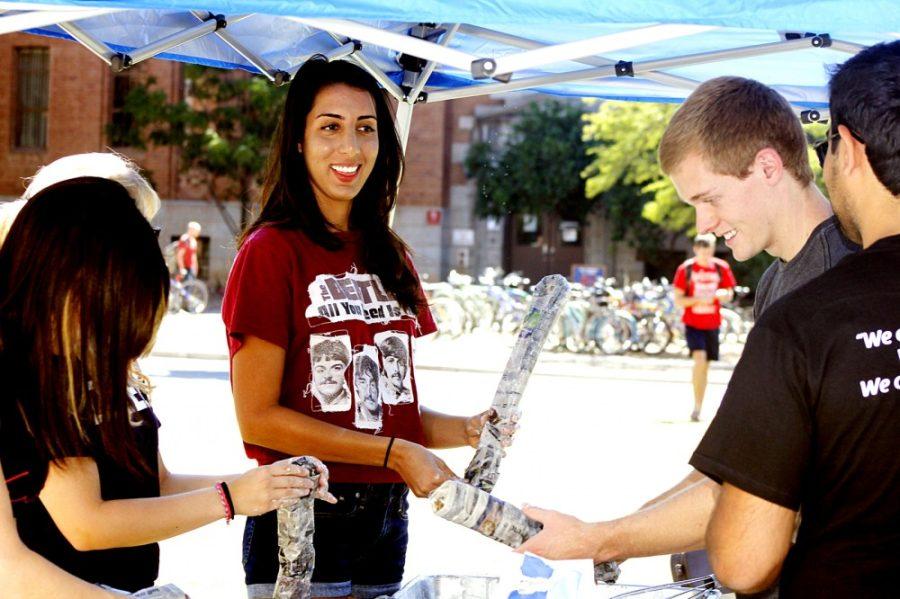The bones being made on the UA Mall on Wednesday only represented a small portion of UA STAND’s larger cause.
UA’s STAND chapter of the United to End Genocide group, was on the UA Mall yesterday raising awareness about genocide by making paper mache bones.
STAND teamed up with One Million Bones last year. One Million Bones is a project aiming to put bones on the National Mall in Washington, D.C. in 2013 as a statement to the government to be more proactive in helping end genocide around the world.
Aeen Asghar, a biochemistry senior and president of the UA STAND club, said the group is trying to raise money for the many projects that the club supports which include funding for clean water and service at refugee camps.
Sonia Sen, a computer science sophomore and treasurer of the club, said that although it is not charging money to make the bones, other chapters are and that the goal is to raise $5 million for the bones. She said it would normally charge $5 per bone but organizers were afraid no one would participate if there were a fee because of the college setting. So instead STAND decided to leave a donation box at the booth on the Mall and hope to raise as much as possible.
She said the purpose of the project is to use art as a means to engage people to be aware of genocide in the world.
“We are here fighting for humanity,” she said.
Tiffany Lee, a sophomore studying physiology and creative writing who is the secretary for UA STAND, said the project is only one of the club’s many projects. She said the club’s goal is to put pressure on the government to act on genocide worldwide. Sen said that, although there are many genocides going on in the world including in Syria, Libya and Burma, the primary focus for the One Million Bones project is the Democratic Republic of the Congo.
Lee said the group’s other projects include Invisible Children and Conflict-Free Campus Initiative where it brings awareness to the treatment of miners in other countries who provide some of the natural resources and minerals used in everyday life.









